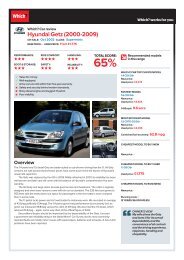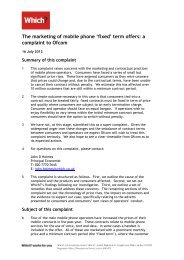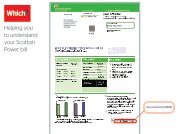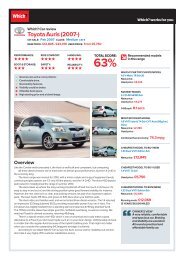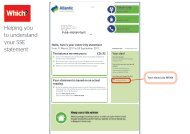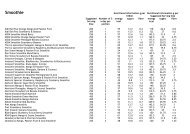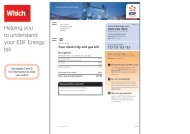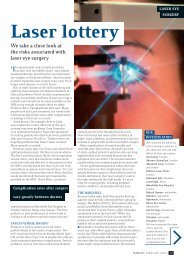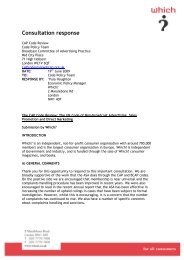Savings and Investments - Magazine
Savings and Investments - Magazine
Savings and Investments - Magazine
- No tags were found...
Create successful ePaper yourself
Turn your PDF publications into a flip-book with our unique Google optimized e-Paper software.
14Underst<strong>and</strong>ing your optionsUnlike the so-called activelymanaged funds (a team orindividual chooses stocks thatthey think will beat marketexpectations over the nextfew years) a tracker fund (orpassive fund) aims to followthe index as closely as possible.Are trackers rightfor you?Trackers suit those who wanta low-cost fund that tracks aparticular stock market.Investors can benefit fromhaving a tracker as part of theirportfolio because of the low cost.Charges are one of the keydifferences between trackerfunds <strong>and</strong> active funds.As they require less day-todaymanagement, trackers tendto have much lower charges.Most will be free to set up <strong>and</strong>usually cost less than 1% a yearto manage. For active funds,investors can pay up to 5%initially <strong>and</strong> an annual chargeof up to 1.5%.Trackers remove the risk ofending up in a fund where themanager makes poor decisions<strong>and</strong> the fund underperformsthe index.TrackersYou first need to decidewhat to track<strong>and</strong> which index is themost suitable to help youachieve your goalsWhat are the risks?Trackers are not risk free. Theyare linked with stock marketfortunes, <strong>and</strong> performance canvary between rival funds – evenif they’re following the sameindex. It all depends on how theyare structured.Some trackers, for example,will buy every stock in the indexin proportion to its weight, whileothers may use more complicatedfinancial instruments to achievethe same result.These techniques generate atracking error – the differencebetween the performance ofthe fund <strong>and</strong> the index beingtracked. The charges leviedwill also eat into your returns.Trackers suffer heavily ifparticular key sectors that makeup a major part of the trackedindex go through a rough patch.For example, the FTSE 100 isweighted towards banks <strong>and</strong>oil companies so, if either ofthese suffer, the index <strong>and</strong> anyassociated funds will be affected.Choosing your fundDecide what you want to track<strong>and</strong> which index will help you toachieve your goals. In the UK, theFTSE 100 may feel like the safestindex to track, but a FTSE All-Sharetracker gives the investor thebenefit of greater diversification.While it’s worth taking trackingerror <strong>and</strong> charges into accountwhen selecting a fund, this is noguarantee that your funds willperform the best.If you’re new to investing, usean independent financial adviser(see p21). If you’re confident, youmay prefer to see a discountbroker or use a fund supermarketwhen choosing your funds.



